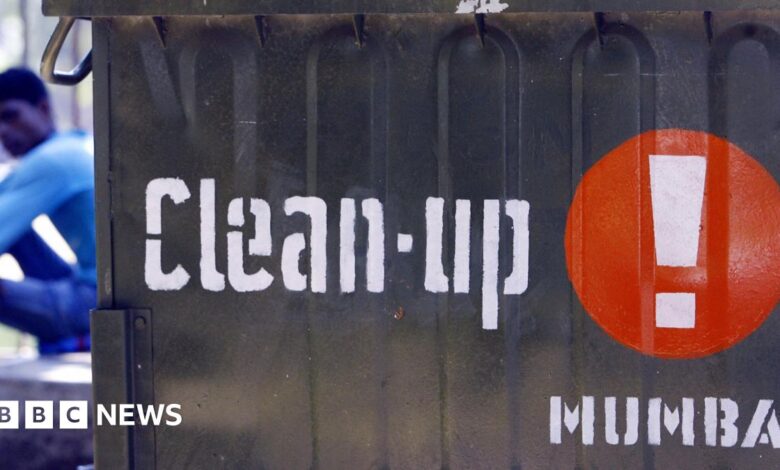The activist tackling Mumbai’s rubbish mountain

The rapid spread of mobile phones and internet connectivity is changing working life in the city.
“If there’s no internet today, everything would be finished,” says Kuldeep Singh Barswal, a driver who makes a living working for a mobile app taxi hailing service.
Mr Barswal used to be a salaried driver for a corporate boss, but illness forced him out of that job. Friends suggested the Ola app, India’s competitor to the better known Uber.
“They said that if you were working so hard for someone else, why not work hard for yourself instead? They told me I would earn three times more,” he says.
“Earlier I had a boss, now I am my own boss. I can say this is better than doing a job.”
It has not been quite so straightforward. Last year, drivers of Mumbai’s famous black and yellow taxis protested against the app-based competition. The apps have also cut payments to their drivers.
That has hit Mr. Barswal’s profits, but he does not want to worry too much. “Why should I spoil my today for something which might happen tomorrow?” he says.
The tenacity and resilience of the people of Mumbai is often celebrated, but it is not a choice. The chaotic, overwhelming city almost forces its residents to become tough and the gaping inequality it puts on display offers a constant reality check.
As Ms Panag puts it: “What Mumbai does is shows you you’re just one side of the spectrum. Even in its most affluent area, you’ll still have slums. It gives you perspective, that no other city in the world can give you.”
Source link




